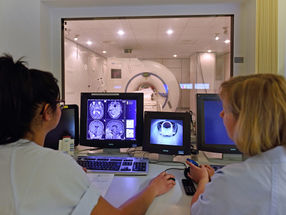deCODE Discovers Major Genetic Risk Factor for Type 2 Diabetes
Discovery may enable development of diagnostics and drugs of major benefit to public health
Advertisement
A team of scientists from deCODE genetics and colleagues report the discovery of a variant in a gene on chromosome 10 that represents the most significant genetic risk factor for type 2 diabetes (T2D) found to date. More than one third of individuals in the populations studied carry one copy of the at-risk variant and are at an approximately 45% increased risk of the disease compared to controls; 7% carry two copies and are at a 141% greater risk. The original finding was made in Iceland and was subsequently confirmed in studies in Denmark and the United States. The study is published in Nature Genetics.
"This is a milestone in human genetics. A common gene variant conferring elevated risk of T2D has been earnestly sought by the genetics community for many years. We have found such a variant, which we estimate accounts for about 20% of T2D cases. This discovery sheds new light on the biological causes of the disease. Importantly, virtually all of this risk can be captured by looking at a single-letter change in DNA - ideal for the development of a genetic test for assessing individual risk and developing more personalized and effective prevention strategies. This is also an exciting starting point for the discovery of new drugs, and we are actively pursuing the development of both diagnostic and therapeutic products to better prevent and treat T2D," said Kari Stefansson, CEO of deCODE and senior author on the study.
The variant is located in a gene encoding a protein called transcription factor 7-like 2 (TCF7L2). deCODE isolated the gene by following up on the results of a population-based, genome-wide linkage scan in Iceland that identified a promising region on chromosome 10. The deCODE team genotyped 228 microsatellite markers - polymorphic signposts along the genome - in this region in a total of more than 2000 patients and controls. Analysis of the frequency of different alleles, or versions, of these markers pinpointed a version of one marker within the gene encoding TCF7L2 that is approximately 1.5 times more common in patients than in controls. This corresponds to a 50% increase in risk of T2D per copy carried.
This finding was replicated in Danish and U.S. cohorts, where the at-risk version of the marker was found to confer an increased risk of 41% and 85%, respectively, per copy carried. For all of the cohorts combined, the at-risk allele confers an increase in risk of approximately 45% for those carrying one copy, and a 141% increase in risk for individuals carrying two copies. Utilizing data from the HapMap project, a SNP was found that correlates nearly perfectly with the at-risk microsatellite.



























































